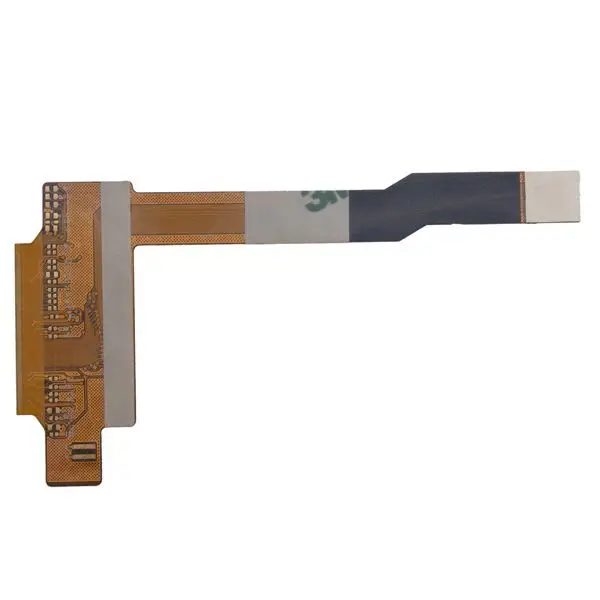
Connecting wire groups that can be bent within a certain degree
FPC cable is a connecting group that can be bent to a certain extent, is an industrial product, generally elongated, and both ends are designed to be pluggable needles.
In-Depth Analysis of FPC Flexible Cable: Definition, Features, Applications, and Trends
What is FPC Flexible Cable?
FPC (Flexible Printed Circuit) is a type of flexible circuit board known for its lightweight, thinness, and high flexibility. Widely used in various electronic devices, FPC is made of flexible materials like polyimide or polyester film. It can perform complex electronic connections in confined spaces, making it an indispensable technology in modern electronics.
Features of FPC Flexible Cable
- Lightweight and Flexible
FPC cables typically have a thickness of 0.05mm to 0.2mm, making them much lighter and more flexible than traditional rigid PCBs. This flexibility allows them to meet the demands of portable devices such as smartphones and smartwatches. - High-Density Wiring
FPC enables high-density circuit routing, allowing complex electronic connections in limited spaces. Its multilayer design capabilities support the miniaturization and integration of electronic products. - Excellent Heat and Chemical Resistance
Made from materials like polyimide, FPC offers outstanding heat resistance and chemical stability, making it suitable for demanding environments like automotive electronics and industrial equipment. - Customization Capability
FPC cables can be tailored to specific product requirements, accommodating various shapes and layouts. This provides great flexibility in device design.
Applications of FPC Flexible Cable
- Consumer Electronics
FPC plays a crucial role in devices such as smartphones, tablets, and smartwatches, connecting screens, batteries, and modules. Its high flexibility and precision routing meet the demands for lightweight and multifunctional designs. - Automotive Electronics
With the rise of smart vehicles, FPC is widely used in automotive displays, sensor modules, and navigation systems. Its heat resistance and vibration tolerance make it ideal for automotive applications. - Medical Devices
The medical field requires compact and precise equipment, making FPC ideal for portable monitors, imaging devices, and implantable medical devices, providing hardware support for medical innovation. - Industrial and Aerospace
In industrial and aerospace fields, FPC’s lightweight and high reliability make it indispensable for complex electronic module connections.
FPC Flexible Cable Production Process
- Material Preparation
Common materials include polyimide film as the substrate and copper foil as the conductive layer. Single-sided, double-sided, or multilayer FPC structures can be selected based on application requirements. - Circuit Design and Etching
Design the circuit diagram based on customer requirements and use etching processes to create circuit patterns on the copper foil. - Lamination and Bonding
Laminate the substrate, conductive layer, and protective film to ensure durability and reliability. - Stamping and Shaping
Use specialized molds to cut the FPC into desired shapes and perform necessary bending tests to ensure flexibility. - Inspection and Quality Control
Every FPC cable undergoes rigorous electrical performance testing and reliability checks to meet customer standards.
Trends in FPC Flexible Cable Development
- Increased Flexibility and Reliability
As technology advances, FPC cables will become even more flexible and resistant to fatigue, meeting the needs of complex applications. - Multifunctionality and Miniaturization
The next generation of FPC cables will integrate more functional modules, such as sensors and antennas, allowing for both signal transmission and functional execution in smaller designs. - Eco-Friendliness and Cost Control
With stricter environmental regulations, FPC production will adopt lead-free and halogen-free processes while improving manufacturing efficiency to reduce costs and enhance competitiveness. - Boost from AI and 5G
With the rise of AI and 5G technologies, FPC cables will play a critical role in smart devices, IoT, and high-frequency, high-speed signal transmission.
Why Choose FPC Flexible Cable?
- Enhanced Design Flexibility
FPC allows designers to overcome the limitations of rigid PCBs and achieve flexible routing in complex spaces. - Adaptability to Rapidly Changing Technology
FPC cables can quickly adapt to new technological requirements, reducing product development cycles in a fast-paced electronics industry. - Reliability and Long Lifespan
Rigorously tested FPC cables offer exceptional reliability and longevity, performing well even in high-frequency use scenarios.
Conclusion
FPC flexible cables, with their unique advantages of lightweight, flexibility, high density, and durability, have become an essential component in modern electronic devices. From consumer electronics to medical devices, automotive electronics to aerospace, FPC applications continue to expand. With advancements in technology and growing market demand, FPC cables will further innovate in miniaturization, multifunctionality, and eco-friendliness, driving new possibilities for the electronics industry.
Keywords: FPC flexible cable, flexible printed circuit, FPC applications, FPC production process, electronic connections, consumer electronics cable

